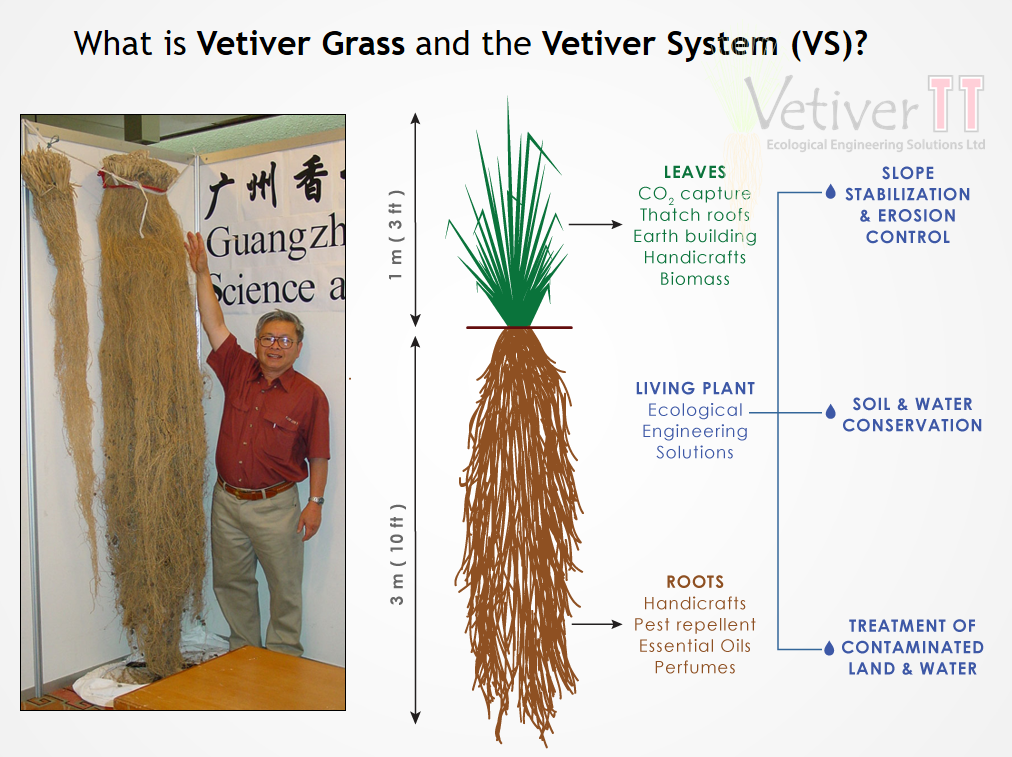The Vetiver System (VS)
The Vetiver System (VS) refers to the best practice methods for use of vetiver grass as a bio-engineering tool to solve many land and water related challenges; and depending on situation needs can be implemented alone, or in combination with other traditional hard-engineered solutions (such as retaining walls, gabion baskets, geotextiles, etc). Each Vetiver System (VS) solution is unique, but entails:
- Slope grade design and recommendation where required, and earthworks-grading,
- Vetiver plants preparation and installation,
- Upstream and surrounding Surface water management,
- Maintenance during establishment,
- Where required, combined solutions with complementing techniques such as gabion baskets, geotextiles, swales, silt fences, coconut matting, other plants, etc.,
- Soil testing and application of fertilizers and soil amendments,
- Irrigation systems during dry season establishment,
- Water testing and applications for contaminated water treatment.
Vetiver Grass is a perennial grass that can withstand a wide range of temperatures ranging from 0 to 50 degrees Celsius. It is certified non-invasive by the USDA, fire tolerant and has a deep and fibrous root system which can extend to 10 feet (3 m) deep within 2 years. The average tensile strength of vetiver roots is 75 MPa which is some 5-7 times greater than most grasses.
VETIVER GRASS INTRODUCTORY VIDEO
What is Vetiver Grass and the Vetiver System (VS)?

